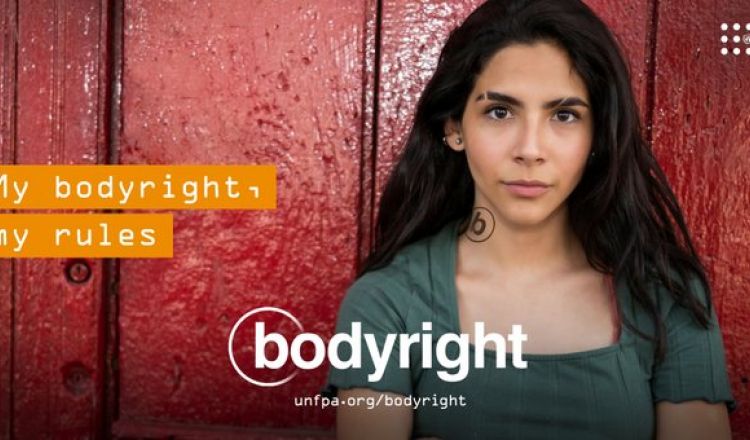Digital violence is violence: Introducing a new copyright for the human body... Claim Your BodyRight Online
2022-01-07 05:12

Introducing a new copyright for the human body-UNFPA
The Internet can be a hateful, hostile place, particularly for women, girls, racial and minorities. Such sexualized abuse includes non-consensual sharing of intimate images (also known as “revenge porn,” an objectionable term that suggests a survivor deserved retribution or consented to making pornography), deepfakes (manipulation of imagery using machine learning/AI) and upskirting (taking non-consensual images up a skirt or dress.)
All are forms of digital violence, which is prevalent, repetitive, perpetual and pervasive. The consequences of these violations of a person's privacy, dignity, autonomy and rights are devastating.
Make no mistake: Even when such violence is perpetrated in the virtual world, the fear, anxiety, loss of self-esteem and sense of powerlessness are very real and enduring.
Online misogyny and violence is a widespread human rights violation, yet tech companies and policymakers place greater value and protections on copyright than on the rights of human beings online.
Those who infringe copyright face legal penalties and swift removal of content by digital platforms, while survivors of online violence face barriers and have few legal rights.
This is why UNFPA is launching bodyright, a brand new “copyright” for the human body. It demands that images of our bodies are given the same respect and protection online as copyright gives to music, film and even corporate logos.
Claim your bodyright...and let’s end online violence.
85% of women globally have experienced or witnessed digital violence against other women.
(SOURCE: Economist Intelligence Unit, 2020, Study only surveyed 18+)
57% of women have had their videos or images online abused or misused. (SOURCE: EIU stat)
96% of online deepfake videos are pornography, all of women. (SOURCE: Sensity AI, a research company)
Demand change
Online violence is a human rights violation. We call on policymakers, tech companies and social media platforms to take image-based abuse, the devaluation of human beings and online misogyny as seriously as they take copyright infringement. Sign the petition and be part of the movement to end digital violence.
[#BestOf2021] Online abuse won’t end on its own, we have to fight.
— UNFPA (@UNFPA) December 27, 2021
Claim your #bodyright and join @UNFPA to #ENDviolence online: https://t.co/X3mAifNiFM
Poet: @rakaya_esime pic.twitter.com/CSBsPzkLUg
Digital violence is violence ????
— UN Geneva (@UNGeneva) January 6, 2022
Take action to #ENDviolence online and join @UNFPA to claim your #bodyright: https://t.co/TLhd7ctnZW pic.twitter.com/plBewHhcjH









